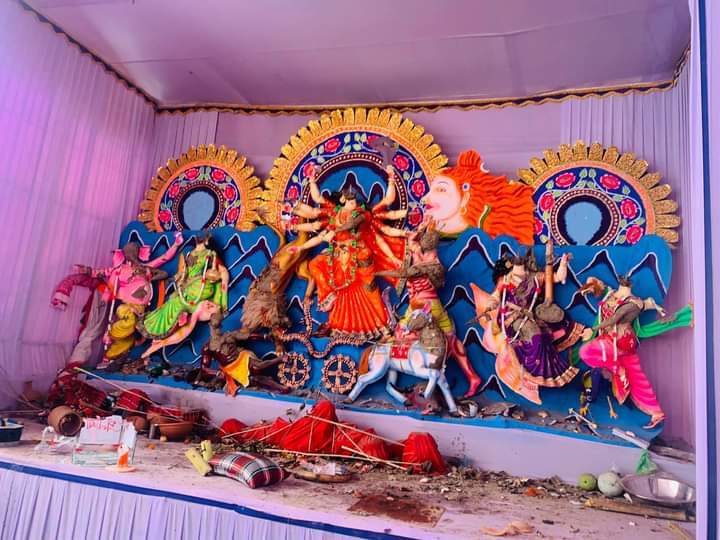
Violence against minorities in Bangladesh is a headache for India
For India, any major outbreak of violence in Bangladesh, both religious and political, can be deeply unsettling, as Bangladesh juts within its territory and shares a long 4,096-km border with West Bengal and the North-East

The communal violence in Bangladesh’s Narail region mid-July may have been quickly controlled but the recurrent pattern is a cause for worry both for the ruling Awami League and for India.
Narail Awami League MP and national cricket captain Mashrafe Mortaza alleged that attacks on houses of Hindus and temples were as much aimed at him as on Hindus. There lies a tale.
Ever since the Awami League returned to power a second and then a third time, such violence targeting Hindus and Buddhists has multiplied. The Islamist opposition groups see the minorities as a stable Awami League votebank which makes them obvious targets. The Islamists seek to terrorise them to either keep them away from voting or force them to vote against the Awami League. This is the vicious play Mortaza was perhaps hinting at.
Also read: Hindu homes, temple vandalised in Bangladesh’s Narail over FB post
Fake social media accounts triggering violence
There are occasional local triggers but the use of fake Hindu social media identities to first post a blasphemous comment and then using it to whip up Muslim anger seems to be the common modus operandi in most incidents of violence against religious minorities.
Often, the local administration’s response is delayed and inadequate, as seen during the 2021 Durga Puja violence in Comilla, when a picture of the Holy Quran on the feet of Lord Hanuman was circulated on social media to provoke the attacks. As the violence spread to nearly 20 districts, the Sheikh Hasina government had to call out border guards and armed police to quell disturbances.
With Bangladesh polls barely just over a year away, the opposition parties have said they will not participate in the polls. BNP senior leader Mirza Abbas told a party rally recently there was no question of contesting polls with Hasina in power. “We will soon intensify our movement to bring down the Hasina government,” Abbas said.
West pushes for inclusive polls
The US and European Union are pushing Bangladesh to ensure inclusive elections, but the Islamist opposition is determined not to join the polls and instead unleash a violent agitation to bring down Hasina by force. Hasina is caught in a bind — how can she ensure an inclusive election the West is pressing for if the opposition, perhaps encouraged by recent events in Sri Lanka, is determined to not join the polls?
Mounting attacks on minorities are likely to accompany the opposition violence because the coalition of BNP and pro-Pakistan Jamaat-e-Islami intend to send a clear message to Delhi — Hasina cannot protect Hindus, so deal with us and stop supporting the Awami League.
That indeed puts Delhi in a spot. Hasina has delivered on all of India’s security and connectivity concerns and India has good reasons to want her return to power a record fourth time to ensure continuity of a superb bilateral relationship. But Delhi cannot be oblivious to the issue of minority protection in Bangladesh, which is what the Islamist opposition would seek to rattle.
Beating the Awami League in polls, especially if it enjoys strong Indian support, will not be easy despite the obvious anti-incumbency. The Awami League can overcome anti-incumbency on the back of its stellar economic and human development performance and by putting up good candidates with clean image and mass connect. India is seen by the Awami League as a shield against western powers like the US, which try to needle Hasina on her human rights record.
Unsettling for India
For India, any major outbreak of violence in Bangladesh, both religious and political, can be deeply unsettling as Bangladesh juts within its territory and shares a long 4,096-km border with West Bengal and the North-East.
Also read: With Padma Bridge, Bangladesh’s Iron Lady Sheikh Hasina makes a statement to the world
The inevitable spillover of any major violence can undo ambitious plans for connectivity to the North-East from the Indian mainland through Bangladesh. But more importantly, any sustained violent campaign by Islamist parties and radical groups can trigger exodus of not only minorities but also of secular Muslims targetted by radicals. It happened in 2001, when the Awami League was ousted from power.
Hasina has so far quelled Islamist violence by tough policing and use of uniformed force. The recent US sanctions against seven senior Bangladesh security officials, including police chief Benazir Ahmed, may make it difficult to launch extensive crackdowns, especially in light of continuous US rant on human rights violations and pitching for the rights of Islamist radicals.
That’s an area in which Hasina needs India’s support and which has been forthcoming so far, but which the Islamists are now trying to dent by attacking minorities.
(Subir Bhaumik is a former BBC correspondent and author)
(The Federal seeks to present views and opinions from all sides of the spectrum. The information, ideas or opinions in the articles are of the author and do not necessarily reflect the views of The Federal)

